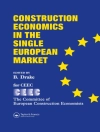This book argues that to understand wetlands is to understand human development. Using case studies drawn from three English wetlands, the book moves between empirical research and scholarship to interrogate how these particular ecosystems have played an essential part in the development of our contemporary society; yet inhabit a strange place in our national psyche. Chapters address a range of cultural and environmental wetland concerns. Consideration is given to: the ways in which we have revered, engineered and renaturalised these landscapes throughout history; English wetlands as spaces of beauty, creativity, reflection, rejuvenation and multi-species interactions; accelerating climate change in an age of neoliberalism. The final chapter then is a reflection on our collective lives together alongside other species, exploring what sustainability transitions might mean for human-wetland relationships.
表中的内容
Chapter 1: Wetlands and Humans across Time: An Overview.- Chapter 2: Wetlands in-depth: The Waterscapes of Bedfordshire, North Lincolnshire and Somerset.- Chapter 3: Wetlands as Ludic Spaces; Play, Recreation, Rejuvenation, In/Exclusion.- Chapter 4: Wetlands as Literary Spaces; off kilter, off grid, off the wall.- Chapter 5: Wetlands as Remembrance Spaces; Contemplation, Ceremony and Commemoration.- Chapter 6: Human-nature Connectivity; Wetlands within Sustainable Water Futures.
关于作者
Mary Gearey Ph D is Senior Lecturer in Social and Cultural Geography at the School of Environment and Technology, University of Brighton, UK.
Andrew Church is Professor of Human Geography and Associate Pro Vice Chancellor for Research and Enterprise at the University of Brighton, UK.
Neil Ravenscroft is Professor and Head of the School of Real Estate and Land Management at the Royal Agricultural University.












